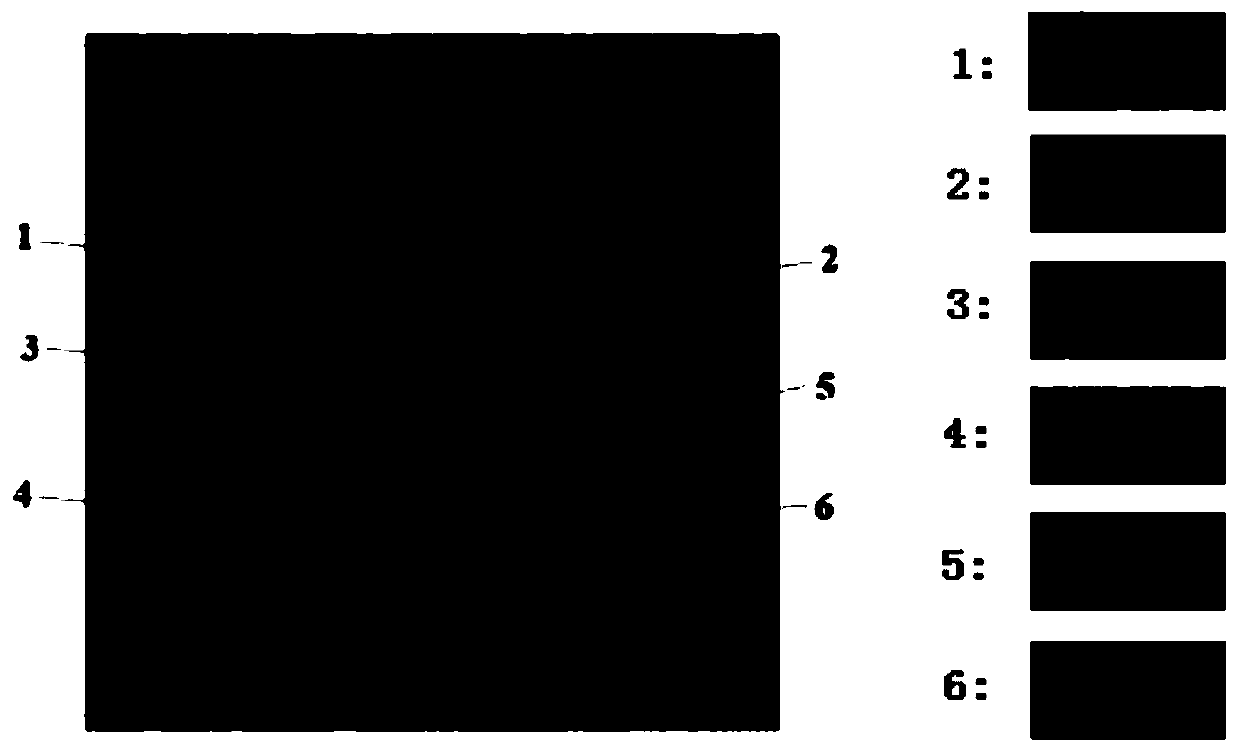Application of aggregation-induced fluorescence probe in fingerprint fluorescence imaging
An aggregation-induced fluorescence and fluorescent probe technology is applied in the application field of aggregation-induced fluorescent probes in fingerprint fluorescence imaging, which can solve the problems of low collection efficiency and complicated operation, and achieves low collection efficiency, simple molecular structure, and clear imaging. Effect
- Summary
- Abstract
- Description
- Claims
- Application Information
AI Technical Summary
Problems solved by technology
Method used
Image
Examples
preparation example Construction
[0041] The fluorescent probe of the present invention can be prepared by a conventional preparation method. The application of the fluorescent probe of the present invention in latent fingerprint fluorescence imaging specifically includes the following steps:
[0042] The solution containing the fluorescent probe is brought into contact with the carrier containing the latent fingerprint, so that the fluorescent probe gathers at the ridgeline of the latent fingerprint. Under ultraviolet light, the excited state of the fluorescent probe molecule is decayed back to The ground state emits fluorescence, thereby realizing fluorescence imaging of latent fingerprints.
[0043] In some embodiments, the solution containing the fluorescent probe is dropped on the carrier containing the latent fingerprint, or the solution containing the fluorescent probe is sprayed on the carrier containing the latent fingerprint, or the solution containing the latent fingerprint is dropped. The fingerprint c...
Embodiment 1
[0057] First prepare an aqueous solution of the dye. Mix the dye and a certain amount of water in a glass bottle, and then put it in an ultrasonic cleaner and ultrasonically mix until the solution has no visible particles. At this point, the fluorescent probe solution for latent fingerprint color detection has been prepared.
[0058] The dye is the fluorescent probe of the present invention, and its molecular structure is shown in formula (1), where Ar 1 for R 1 Is hydroxyethyl; Ar 2 for
[0059] It can be obtained by simple synthesis in one step. Synthesis of compound (E)-2-(4-(4-(2-(pyridin-4-yl)vinyl)phenyl)piperazin-1-yl)ethanol, add 4-(4-( 2-Hydroxyethyl) piperazin-1-yl) benzaldehyde (1eq),: 4-picoline (1eq), potassium tert-butoxide (2eq, the stoichiometric quantity of potassium tert-butoxide is 2, at 2eq You can add more appropriately under the dosage of, which is beneficial to complete the reaction.), then add DMF (dimethylformamide) as a solvent, and finally put in the...
Embodiment 2
[0069] First prepare an aqueous solution of the dye. Mix the dye and a certain amount of water in a glass bottle, and then put it in an ultrasonic cleaner and ultrasonically mix until the solution has no visible particles. At this point, the fluorescent probe solution for latent fingerprint color detection has been prepared.
[0070] The dye is the fluorescent probe of the present invention, and its molecular structure is shown in formula (1), where R 3 Is hydroxyethyl; Ar 1 for Ar 2 for
[0071] It can be synthesized by a simple one-step reaction. Similar to Example 1, also aldehyde React with picoline to obtain the final product.
[0072] As in Example 1, using the fluorescent probe for the fluorescent imaging detection of latent fingerprints with a plastic petri dish substrate can be obtained as Figure 4 , It can be seen from the figure that the fingerprint imaging is clear, and the fingerprint feature recognition is very high.
PUM
| Property | Measurement | Unit |
|---|---|---|
| wavelength | aaaaa | aaaaa |
| wavelength | aaaaa | aaaaa |
Abstract
Description
Claims
Application Information
 Login to View More
Login to View More - R&D
- Intellectual Property
- Life Sciences
- Materials
- Tech Scout
- Unparalleled Data Quality
- Higher Quality Content
- 60% Fewer Hallucinations
Browse by: Latest US Patents, China's latest patents, Technical Efficacy Thesaurus, Application Domain, Technology Topic, Popular Technical Reports.
© 2025 PatSnap. All rights reserved.Legal|Privacy policy|Modern Slavery Act Transparency Statement|Sitemap|About US| Contact US: help@patsnap.com



